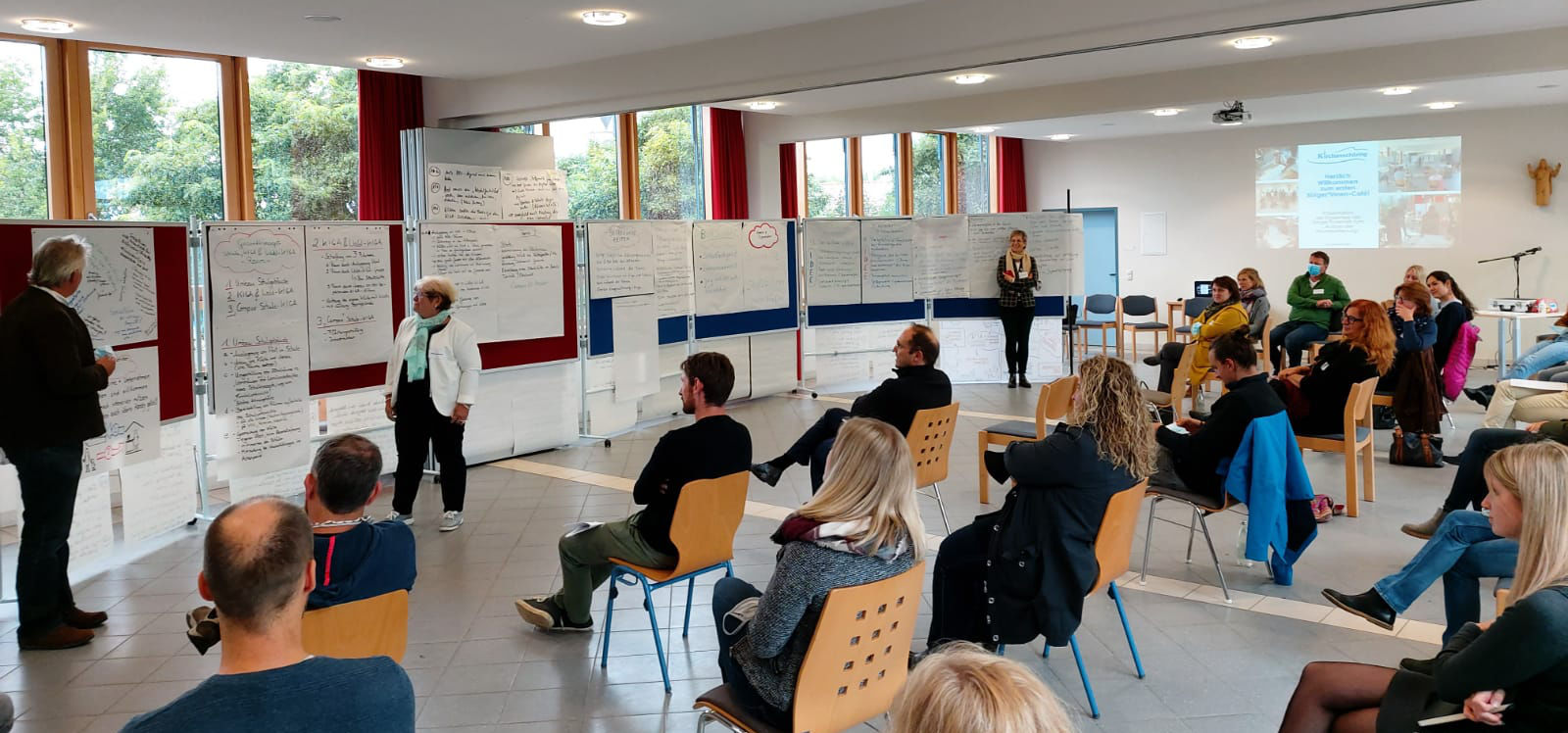Direct democracy helps to develop child care concepts
The first Citizens’ Council in Kirchanschöring, Bavaria, Germany, lasted a total of three days in September 2020. First, 15 people randomly selected from the registration register spent two days in the Citizens’ Council discussing the question of what future childcare should look like. This process was accompanied by Tanja Schnetzer and Cordula Riener-Tiefenthaler, both founding members of Dynamic Facilitation e.V..
On the third day, the forward-looking ideas developed with the help of Dynamic Facilitation were presented to other interested citizens of the commune in a Citizens’ Forum. Here, too, everyone was able to participate and evaluate and further develop the concepts presented in three rounds of discussion. In the end, a colorful picture emerged of how the people of Kirchanschöring envision the care and development of their children in the future.
Hans-Jörg Birner, Kirchanschöring’s first mayor, had come up with this idea through the Economy for the Common Good and had initiated the Citizens’ Council as a citizen participation instrument in his municipality. “Citizen participation has been around in all kinds of forms for quite a long time,” he says, explaining his decision in favor of this new format. “The Citizens’ Council is a special method that doesn’t yet exist in our region. It’s relatively new, so we were curious to see if it would work here.”
Sylvia Köberle, Christina Schuhbäck and Helmut Schmid, who participated in the entire process as citizens, were very satisfied with the result and experienced the work with the other citizens as respectful, creative and an important part of living democracy. “Through the method, it was a respectful interaction among all of us. You always felt at ease and realized that your own opinion carried” is how Christina Schubäck describes her experience. “That simplified the whole thought process, because you didn’t have the blockade, if I say something now, then everyone thinks that doesn’t fit, so I’d better not say it. But everybody always said what they thought, what they felt, and everybody else accepted it and listened. And that has developed this extremely positive dynamic.”
The implementation of citizen participation with Dynamic Facilitation creates a space for the free flow of thoughts for all participants. The format is suitable for all topics that are important and burning in a community and among the population, such as the development of traffic concepts, ideas for future mobility, concepts for aging in the future, answering climate questions, the future of agriculture or even the integration of the opinions of children and young people in, for example, their own council. The goal is always to find solutions to complex issues and to activate the creativity and wisdom of the many. Even when situations are conflict-laden and there seems to be no agreement, this format takes hold and usually develops unanimous solutions.
Mayor Birner was very satisfied with the first Citizens’ Council process in his municipality. “Very concrete recommendations for improving traffic and infrastructure as well as for the design of childcare hours have emerged,” he said, summarizing the results, “In addition, ideas for future, educational concepts and, above all, the vision of a “Campus for Children” in the middle of our village have been developed. I think a lot of the content is implementable and I’m really looking forward to it!”
The Citizens’ Councils will now present the results of the process to the Municipal Council in a joint meeting. Subsequently, the next steps of the implementation will be discussed and decided. The project was supported by the Office for Rural Development.
Contact
Tanja Schnetzer
Fon +49 8051 96 57 555
Mobile +49 175 185 2858
tanja.schnetzer@dynamicfacilitation.org







